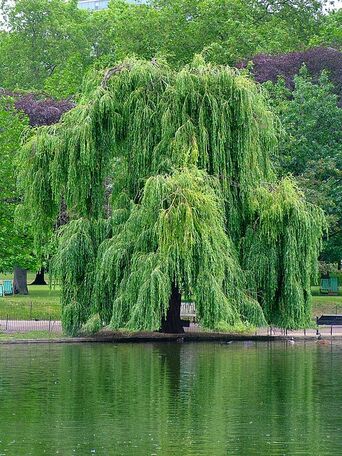An Ecoliterate Philosophy for Life
Today’s blog post is a little different. I’m not sure I’ve thought about these things the whole way through yet, and so I am just going to allow the words to wrest themselves form my mind, as imperfect as they are, and see what comes of them. What I am thinking about today is eco-literacy as more than a philosophy for schools, more than a philosophy for teaching and learning, but also as a philosophy for life. That is, I suspect ecoliteracy can give us insight into all aspects of living. And so today I’m thinking about our culture, or our society, and it’s guiding message to people. That message is that we, each “individual self,” is, in various ways and to varied extents, worthless, irrelevant, and not needed. Every teacher and every student receives this message—as well as every cashier, carpenter, lawyer, truck driver, doctor, salesperson, stay-at-home parent, and out-of-work or homeless person. Everybody, regardless of what they are doing, how successful or unsuccessful, how much they’re paid, gets this message through the structure of our work, our government, our media. And if you are told over and over that you are worthless, irrelevant, not needed, eventually you will begin to accept that message.
Can ecoliteracy as a guiding philosophy for teaching, learning, and, more importantly, living, counteract that message that I and so many people receive? With all things experienced psychologically, cause and effect are often difficult to disentangle. Ecoliteracy seems to place emphasis on descriptive, rather than predictive, analysis. Do we feel worthless, irrelevant, not needed because we have been explicitly told that message? Because we have failed to accomplish in our culture, at work, in our families, what we hoped? Or do we feel this way and then later fail to succeed? Do we lose confidence, experience depression and angry, feel detached and discarded because our work and family lives, and everything we see on television and social media steals our confidence, makes us depressed and angry, detached and discarded; or do we feel these things and then only see television and social media that reinforces our ineffectiveness? Do so many of us abuse drugs to numb this message, or do we use drugs, and then this message leads to our suffering? Does order of operation really matter? From an ecoliterate perspective, it doesn’t. Both are happening. We experience both.
I tend to think about ecoliteracy as more than a philosophy for just schools, and more of a philosophy for life. Rather than focusing on the individual as a detached thing that can be dissected, measured, and fully reduced to yet-to-be-determined laws of physics (the traditional scientific process), ecoliteracy draws our attention to ecology and literacy—that is the “web of life” (ecology) and then analyzing, understanding, and loving (a different sort of literacy than most reductionists would agree with, I suppose) ourselves and our interdependence with others and nature, the web of life of which we can be a sustainable member.
You are not worthless. You are not irrelevant. You are needed. So am I. An ecoliterate philosophy of life may open our eyes and ears, our skin and noses to the largest and smallest lifeforms, each with unique ways contributing to a living Mother Earth. If the worm’s contribution is different than the whale’s; the sunflower’s different than the snake; and the rose bush’s different than the redwood’s; the river’s different than the rainstorm, that is to be expected and celebrated—each diverse system expressing its diversity with kindness and respect for difference.
Even while using terms like “respect” and “kindness” more than ever, schools seem to have moved further away from cultivating respect and kindness, because both require teaching and learning and ongoing effort to cultivate both. Both require the rejection of simple reduction, of technologized fixes, and of answers that can be offered using multiple-choice. It begins by respecting everybody as having worth, relevance, and being needed. It requires holding people to supporting each other’s worth, relevance, and being needed. And it requires opening the sphere of worth, relevance, and being needed to all non-human creation. But schools cannot accomplish this without grassroots effort—community-specific effort to hold schools accountable for supporting students who are worthy, relevant, and needed; respectful and kind. Without the grassroots effort of a local community, respect and kindness are reduced in schools to something horrible, standardized, technologized, and neither respectful nor kind to the web of life, including the people in the school building, the community, and non-human animal life and bioregions in which teaching and learning take place. Because schools are always talked to by the government, by curricular industry. The only possible counterbalance to that influence, which is too general to be respectful or kind, is local pressure.
What do you think? Am I on or off with this line of thinking?
DS


 RSS Feed
RSS Feed
